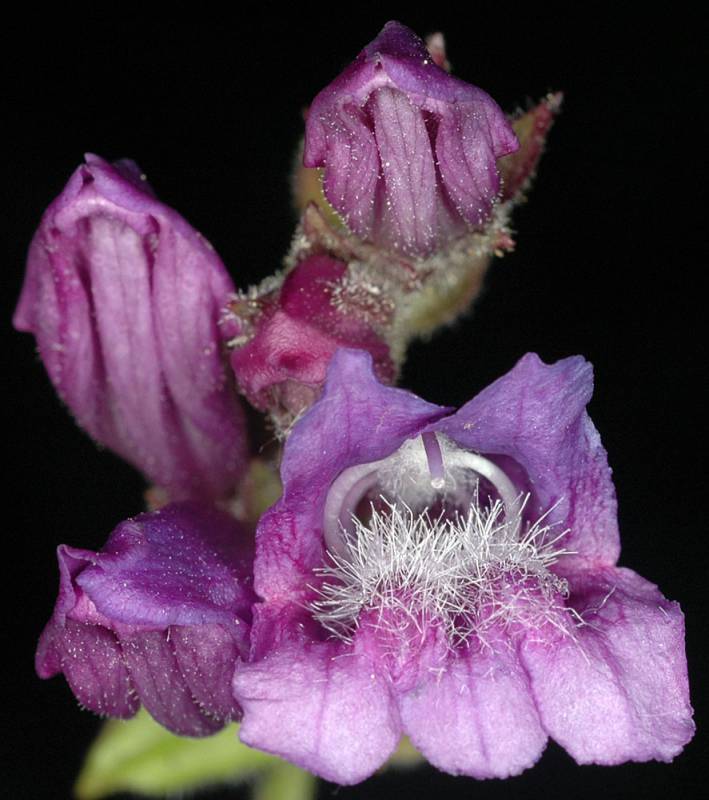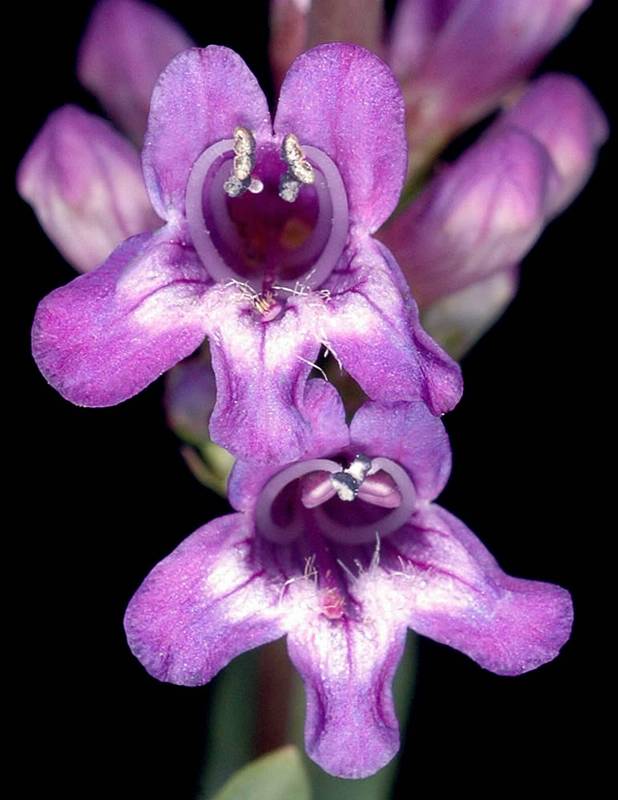Penstemon cardwellii
Penstemon euglaucus
Cardwell's beardtongue
glaucous beardtongue
Leaves opposite, glabrous, the largest on short, sterile shoots, serrulate or nearly entire, short-petiolate, the blades elliptic, 1.5-3.5 cm. long and 6-14 mm. wide;
leaves of the flowering shoots less crowded, smaller, sessile and entire.
Leaves opposite, entire, the basal ones petiolate, oblanceolate, forming well-developed rosettes, up to 15 cm. long and 2 cm. wide;
cauline leaves few, well-developed, sessile, not over 10 cm. long and 2 cm. wide.
Inflorescence racemose, few-flowered and crowded, glandular, the simple pedicels opposite and axillary;
calyx 5-12 mm. long, the 5 segments thin and lanceolate;
corolla bright purple to deep blue-violet, 30-38 mm. long, about 1 cm. wide at the mouth, keeled on the back, glabrous outside and with long, white hairs near the base of the lower lip within;
anthers long-wooly, pollen sacs opposite;
staminode slender, shorter than the 4 fertile filaments, long-bearded toward the tip
Inflorescence of 1-several dense verticillasters, the flowers spreading at right angles to the stem;
calyx 3.5-5 mm. long, the 5 segments broadly scarious-margined, abruptly contracted to a narrow, pointed tip;
corolla blue-purple, 11-15 mm. long, bilabiate, the tube expanded, 3-5 mm. wide at the mouth; raised portion of the lower petal bearded;
staminode usually bearded at the expanded tip;
pollen sacs glabrous, ovate, 0.6-1.0 mm. long, not quite opening to the tip.
Capsule
Capsule 5-6 mm. long



